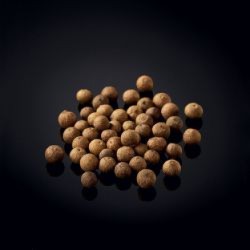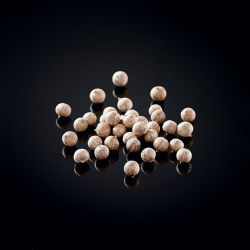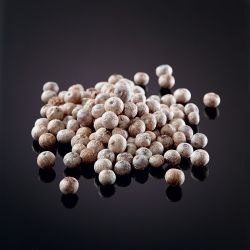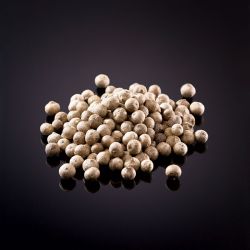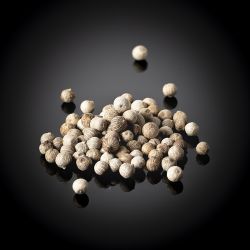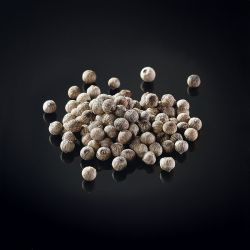White pepper
White pepper comes from the same vine as black pepper. It is harvested when the core of the berry has developed. To preserve its aromas and freshness, we recommend buying it as whole peppercorns rather than in powder form. Once ground, white pepper reveals subtle flavours, often more refined than those of other varieties, with notes reminiscent of citrus fruit, menthol and eucalyptus. In cooking, it is particularly popular for seasoning meats (in marinades or after cooking), creamy sauces, soups, pasta dishes and salads, and goes perfectly with fresh oysters.
Active filters
What is the difference between black and white pepper?
White pepper comes from the same vine as black pepper. Pepper used to make white pepper is harvested when the core of the berry has formed. The berries that produce the most aromatic peppers are the red ones, picked when fully ripe. The berries are stripped of their outer shell (pericarp) and pulp by soaking and retting (berries rubbed together to remove skin and pulp). The result is a pepper with a more delicate aroma and milder flavour, less spicy than black pepper depending on the region.
White peppercorns are distinguished by the absence of pulp and pericarp, which changes their taste and appearance. Their sweetness comes from the fact that the powerful essences contained in the pulp and pericarp are attenuated during the production process.
How do I use white pepper?
We recommend that you buy whole peppercorns rather than powdered ones, to preserve the aromas and freshness of both the peppercorn and the grind. Once ground, white pepper reveals its subtleties, often surpassing other peppers in terms of refined flavour. Its aromatic and flavour notes are reminiscent of citrus fruit, menthol, eucalyptus, etc. White pepper is particularly popular in the kitchen as a seasoning for meats (in marinades or after cooking), sauces (mainly cream-based), soups, pasta dishes, vegetables (especially salads) and, magnificently, fresh oysters. Although milder than black pepper, white pepper has distinct animal notes. It is therefore advisable to use it in moderation, adjusting the intensity of its flavour to suit your preferences.
Is white pepper good for your health?
White pepper has a number of health benefits when used in moderation. It shares similar properties to black pepper, as they come from the same plant, Piper nigrum. White pepper stimulates the production of gastric juices, which aids digestion and improves nutrient absorption. Like black and red pepper, it contains piperine, a compound with anti-inflammatory effects that can help reduce chronic inflammation. In short, white pepper is not only a versatile spice in the kitchen, but also an ally for digestion, reducing inflammation and helping to improve nutrient absorption.
See also our selection of green pepper, red pepper and organic pepper.

